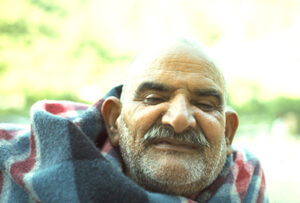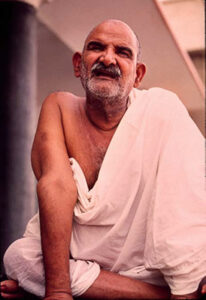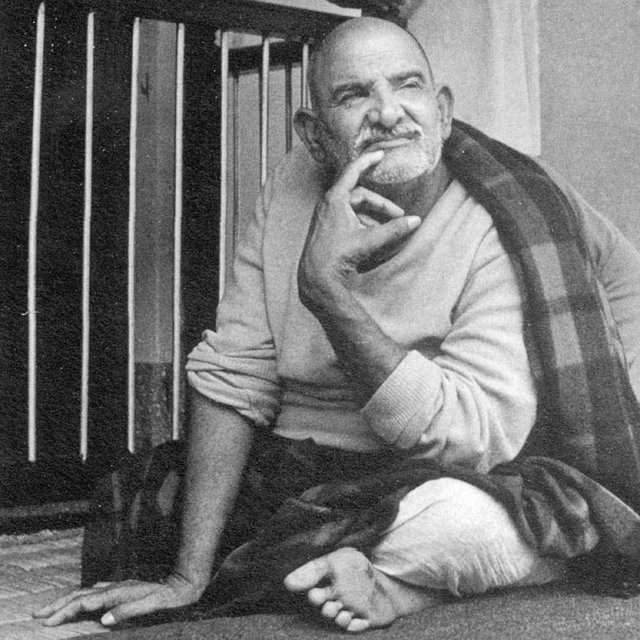Maharajji's Help for The Foresaken Ones
 Every individual suffers from some kind of physical and mental pain. But with many, hunger and disease of body or mind become acute. One of Babaji's visible methods of helping people was by feeding the hungry, arranging medical treatment for the sick, and giving money and materials to the helpless. The brief interlude of his life in the ashrams was spent in caring for the hungry and curing the sick, like the head of a household busy with his large family. Those who visited his ashrams, especially Kainchi, saw how prasad was being served throughout the day to all and sundry without any discrimination. For some it was prasad, an auspicious token of spiritual elevation, but for many more it was a whole meal for the stomach.
Every individual suffers from some kind of physical and mental pain. But with many, hunger and disease of body or mind become acute. One of Babaji's visible methods of helping people was by feeding the hungry, arranging medical treatment for the sick, and giving money and materials to the helpless. The brief interlude of his life in the ashrams was spent in caring for the hungry and curing the sick, like the head of a household busy with his large family. Those who visited his ashrams, especially Kainchi, saw how prasad was being served throughout the day to all and sundry without any discrimination. For some it was prasad, an auspicious token of spiritual elevation, but for many more it was a whole meal for the stomach.

 There were many such experiences indicating how Babaji kept track of the doings of his devotees. In 1947 at the crown of Ayodhya Nath Singh's glory, as an honest and incorruptible officer who resisted all temptation to make easy money while performing his duties, he was posted in Faizabad as Excise Inspector. He received a telegram from Babaji asking him to meet him in Allahabad.
There were many such experiences indicating how Babaji kept track of the doings of his devotees. In 1947 at the crown of Ayodhya Nath Singh's glory, as an honest and incorruptible officer who resisted all temptation to make easy money while performing his duties, he was posted in Faizabad as Excise Inspector. He received a telegram from Babaji asking him to meet him in Allahabad. The late Mrs. Uma Shungloo was a very religious, simple and pious, polite, self-respecting old Kashmiri Brahmin lady. She was dutiful, scrupulously clean and without any modern-day evils.
The late Mrs. Uma Shungloo was a very religious, simple and pious, polite, self-respecting old Kashmiri Brahmin lady. She was dutiful, scrupulously clean and without any modern-day evils. How strange is the passage of time. What was once visible becomes invisible and what was once outside the field of vision takes shape before our eyes.
How strange is the passage of time. What was once visible becomes invisible and what was once outside the field of vision takes shape before our eyes. Bhagwan Singh, known as Bhabania, was born in an obscure village of the Kumoan. Now middle-aged, he was well known to those who visited Babaji's temples at Lucknow, Vrindaban and other places.
Bhagwan Singh, known as Bhabania, was born in an obscure village of the Kumoan. Now middle-aged, he was well known to those who visited Babaji's temples at Lucknow, Vrindaban and other places.